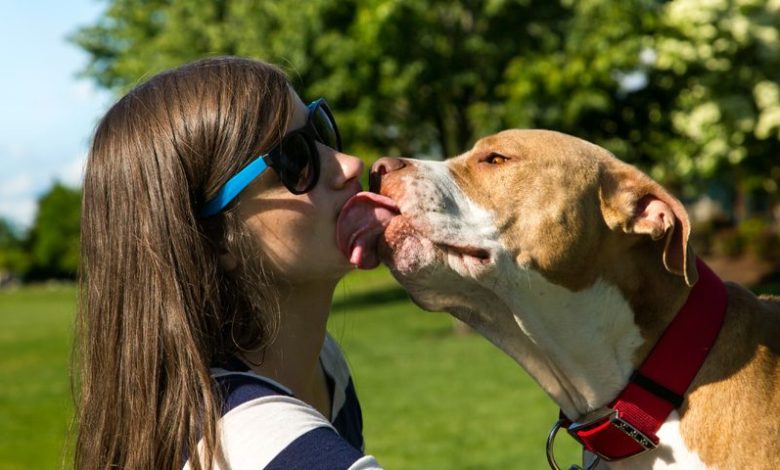Treating pets like humans ‘could be life-threatening’

Scientists have discovered that treating pets like humans could be life-threatening because some forms of affectionate behaviour pose an antibiotic-resistance risk to families and their domestic animals.
Glasgow Caledonian University (GCU) health psychologist Dr Adele Dickson was the lead researcher in the research, which identified overprescribing of antibiotics as the key cause of antimicrobial resistance (AMR) and that close contact with pets can spread drug-resistant bugs from pet to human, or vice versa.
Despite the findings, researchers aren’t advising owners isn’t to stop being affectionate with family pets but to adopt some changes to reduce the risk of building life-threatening resistance to antibiotics including discussing the need for antibiotics with vets and GPs.
The study was carried out by Dr Dickson and other members of GCU’s Safeguarding Health through Infection Prevention (SHIP) research group, Monash University in Australia and the Open University in collaboration with Health Protection Scotland (HPS) and supported by the Scottish government.
Dickson said: “As the owner of a two-year-old Golden Retriever, I know how important that affectionate relationship between the owner and their pet is to both mental and physical health and wellbeing.
“I’m not saying pet owners need to stop showing affection for their companion animals because we know from our research and from speaking to 23 British dog, cat and rabbit owners who shared their stories that these behaviours are so deeply treasured they are unlikely to be amenable to change.”
Dickson said some ways to reduce risks included avoiding kissing pets on the mouth, not letting them lick the mouth and nose, washing hands after stroking animals – particularly before meals – and making sure they eat from their own bowls instead of household utensils.
She emphasised that the biggest threat to health was the overuse and misuse of antibiotics and expressed concern that it had become the go-to drug for many domestic animal ailments.
Dickson added: “This close contact could potentially put adults, children and the pets themselves at risk of transferring bugs that are resistant to antibiotics through saliva. I would also advise any open wounds be covered so there’s no risk of transferring anything from skin to skin.
“Pet owners shouldn’t panic because the risk of AMR transmission for most people from affectionate behaviour with pets is relatively low. The biggest take home message to pet owners from this study is to think twice about whether your pet, you, your children or other family members actually need antibiotics. The worst case scenario if people don’t heed this advice is potentially catastrophic for the family and the pet. The consequences are very real and could be life-threatening.”













